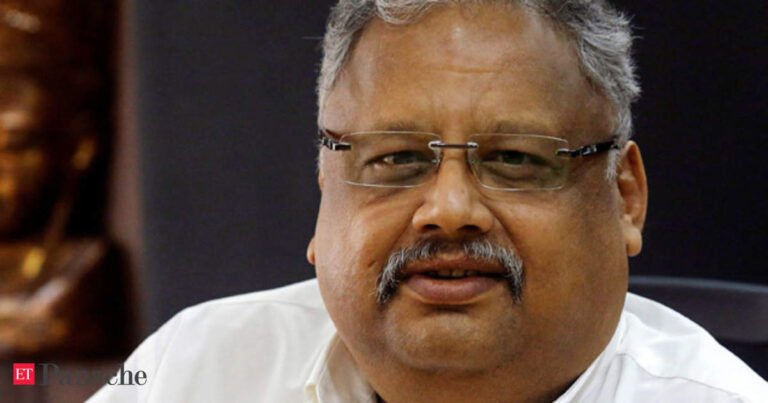However, at a recent panel discussion held by EdelGive Foundation at the Bombay Stock Exchange, the most-watched man on Dalal Street had the audience’s attention while discussing something apart from stocks and shares — social, non- profit organisations. Like his investments, Jhunjhunwala brings his bullishness even to philanthropy.
Here’s are some interesting things the billionaire investor said about the art of giving.
“I follow the policy of start [charity] with money and then slowly figure out time [for it]. My time is spent much better earning the money, rather than doing both. It would have higher impact. That’s how I comfort myself.”
“Like a mid-cap company or a small company, a nonprofit organisation needs something for a quantum leap. It needs money, organisation, processes, system and people. That’s why for one NGO, I spaced out the funding over 10 years instead of giving it all in one year. This will ensure that the organisation grows.”
“Help fewer people, but help them properly. Just trying to spend the numbers, is not going to help.” “Whenever someone comes to me for a donation, I never feel that person is below me. Without my money, the organisation would have still become operational, but without the founder, there would be no organisation. So, we must recognise and respect the people who are devoting their time for a good cause.”

Rakesh Jhunjhunwala with his wife Rekha (Image: BCCL)
“In charity I believe if I like the crusade and the crusader, there will be good return on the money. Also, I don’t ask too many questions…”
“Today’s first-generation entrepreneurs are more predisposed to giving. Also Indians are prone to religious giving, but that thinking is now changing among youngsters. They are donating for other causes. I am very bullish that the growth in the social sector will far outgrow the GDP growth in India.”
“We make a lot of investments. In some, you get returns in two years, some take 10 years, but overall you don’t let go of an investment unless you feel it’s hopeless. In the social sector, it’s not about immediate results and also you need to ascertain the difficulty of the task.”
“Whatever I like to do, I like to do in a sizeable manner.”
“Don’t get disappointed if somebody declines to donate. You ask again and again and again… Whether in charity or business, you’ll die a thousand deaths before you succeed. Sometimes you feel insulted, you feel low, you even feel like giving up. But you have to overcome that. It’s all about the battle of the mind.”
“Most people [donors) want their name to be put on the charity initiative. For instance, some say, ‘I donated to a college, so name the lab after me’. I have pledged one thing in life that I don’t want my name or importance for any charitable purposes”
“One advice I will give NGOs while hunting for donors is, ‘maangne mein kya jata hai?” [What is the harm in asking?] I learnt this from World Wildlife Fund (WWF). On a friend’s recommendation, I donated Rs 1 lakh to WWF. I get two dinner invitations a year and 40 mails reminding me to renew my donation.”
“Once I choose an organisation, either I support it for one or two years or for the long term. In fact, good causes always need more money. When an organisation is doing well, why change? I do everything in my life for the long term — investment, marriage.”

